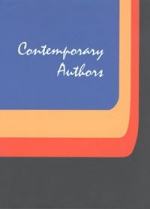|
This section contains 574 words (approx. 2 pages at 300 words per page) |

|
SOURCE: “Humour, Mature and Childlike,” in The Language of Literature: English Grammar in Action, Macmillan, 1985, pp. 137-38.
In the following essay, Cottle lauds Nash's humorous verse, contending that “he is genuinely observant of what is abidingly and harmlessly funny, he is not sick or bitter, he uses for uproarious ends the methods of poetry, the vision and vicissitudes of the poetic life.”
It is likely that some of the brightest examples of linguistic resource will be found in humorous verse; but such verse is so often mainly facetious that it cannot stand by the classics, or the earnestly intended classics, that I have mostly used. This is where so many readers find Ogden Nash (1902-1971) of merit; he is genuinely observant of what is abidingly and harmlessly funny, he is not sick or bitter, he uses for uproarious ends the methods of poetry, the vision and the vicissitudes...
|
This section contains 574 words (approx. 2 pages at 300 words per page) |

|


